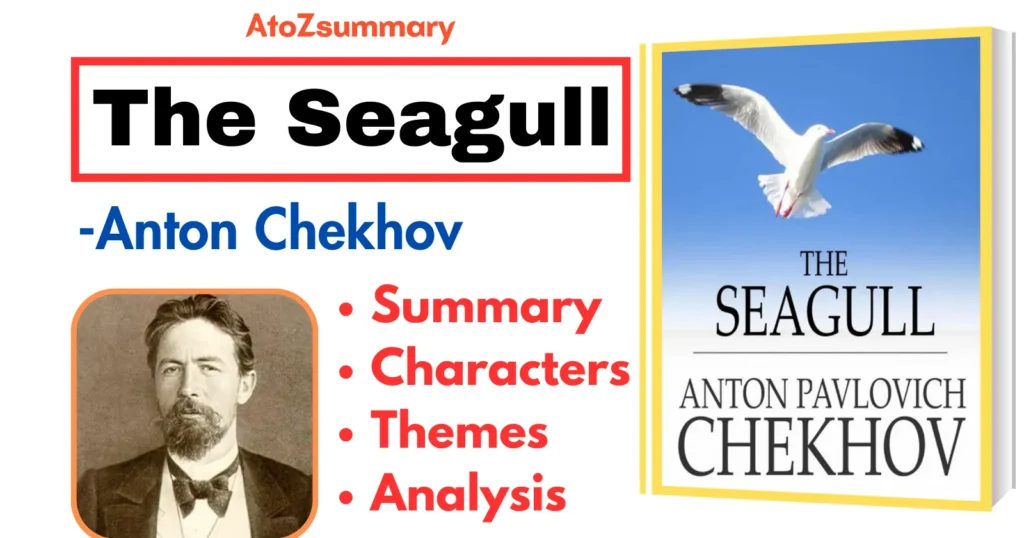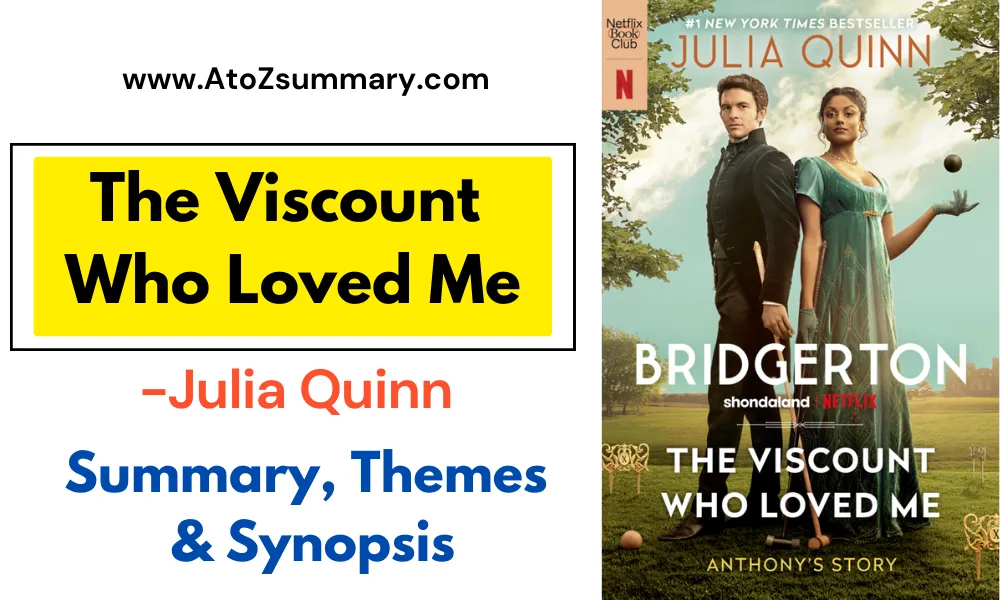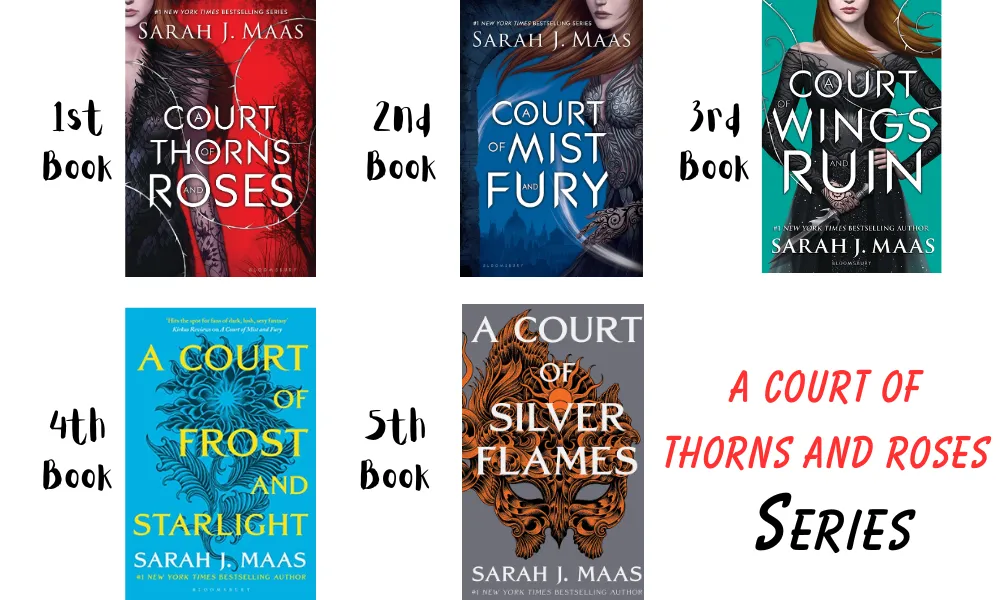About the Poem “Mock Orange”
| Poem Title | Mock Orange |
| Author | Louise Glück |
| Genre | Free verse |
| Publication year | 1971 |
| Poetic Form | Free verse |
| Literary devices | Metaphor, Symbolism (flowers), personification, Imagery and sensory details |
| Structure | 24 lines in 5 stanzas |
| Speaker | A woman who is disillusioned with life |
| Setting | A garden |
| Major symbols | The mock orange flowers, the moon, the odor |
Themes of Mock Orange
The themes of the poem “Mock Orange” by Louise Glück are:
- Disillusionment ➤ The poem explores how people can become disappointed when their expectations don’t match reality.
- Family Relationships ➤ It delves into the complex emotions and dynamics within a family, especially the relationship between the speaker and her brother.
- Nature’s Influence ➤ Nature, symbolized by the mock orange bush, is used to reflect and mirror the emotions and experiences of the characters in the poem.
“Mock Orange” Poem by Louise Glück
It is not the moon, I tell you.
It is these flowers
lighting the yard.
I hate them.
I hate them as I hate s*x,
the man’s mouth
sealing my mouth, the man’s
paralyzing body-
and the cry that always escapes,
the low, humiliating
premise of union-
In my mind tonight
I hear the question and pursuing answer
fused in one sound
that mounts and mounts and then
is split into the old selves,
the tired antagonisms. Do you see?
We were made fools of.
And the scent of mock orange
drifts through the window.
How can I rest?
How can I be content
when there is still
that odor in the world?
Mock Orange Summary & Analysis
Louise Glück’s poem “Mock Orange” is a complex and powerful exploration of disillusionment, disappointment, and the search for meaning. The poem is spoken by a woman who is reflecting on her life and her disillusionment with the world around her. She sees the mock orange flowers in her garden as a symbol of her own disillusionment and the false promises of life.
The poem begins with the speaker addressing the moon, claiming that it is the mock orange flowers that are lighting up the yard, not the moon. She then goes on to say that she despises the flowers because they remind her of the “low, humiliating/ premise of union.”
The speaker then elaborates on the mock orange flowers, mentioning their “heavy, scentless blossoms” and “sickly sweet perfume.” The flowers, she says, are like a “false bride” and a “treacherous lover.”
In the third stanza, the speaker begins to reflect on her own life and her disillusionment with it. She says that the promises of life have “made fools of” her and her lover. She also claims that she is unable to sleep due to the “odor in the world.”
In the fourth stanza, the speaker continues to reflect on her disillusionment. She describes herself as a “stranger” in her own life, “split into the old selves, the tired antagonisms.” She also claims that she feels “watched” by the mock orange flowers.
In the final stanza, the speaker returns to the image of the moon. She explains the moon as “not a god,” but rather a “ball of rock.” This implies that the speaker has lost faith in God and the possibility of finding meaning in life.
FAQs from Mock Orange
What is mock orange poem about?
Mock orange is a poem about the speaker’s disillusionment with love and her own sexuality.
What does the orange symbolize in the poem?
The orange in Mock Orange symbolizes false promises and disappointment.
What family is mock orange in?
Mock orange is in the hydrangea family.
Why is it called mock orange?
It’s called mock orange because its flowers smell like orange blossoms, but are not actually orange.

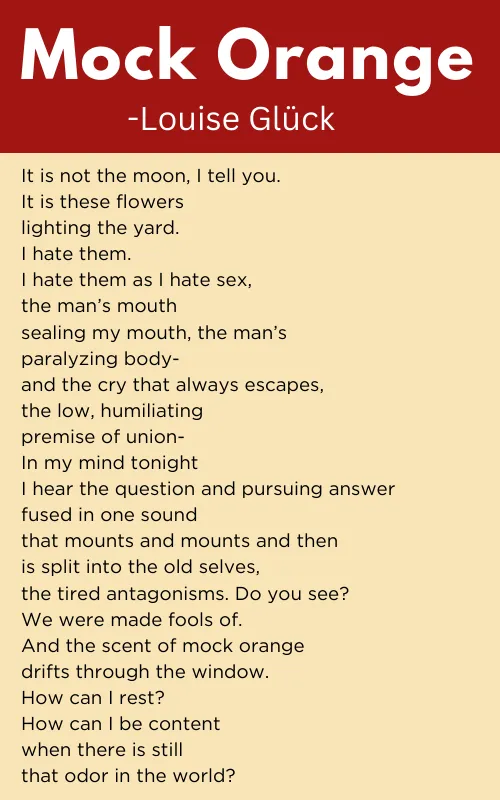


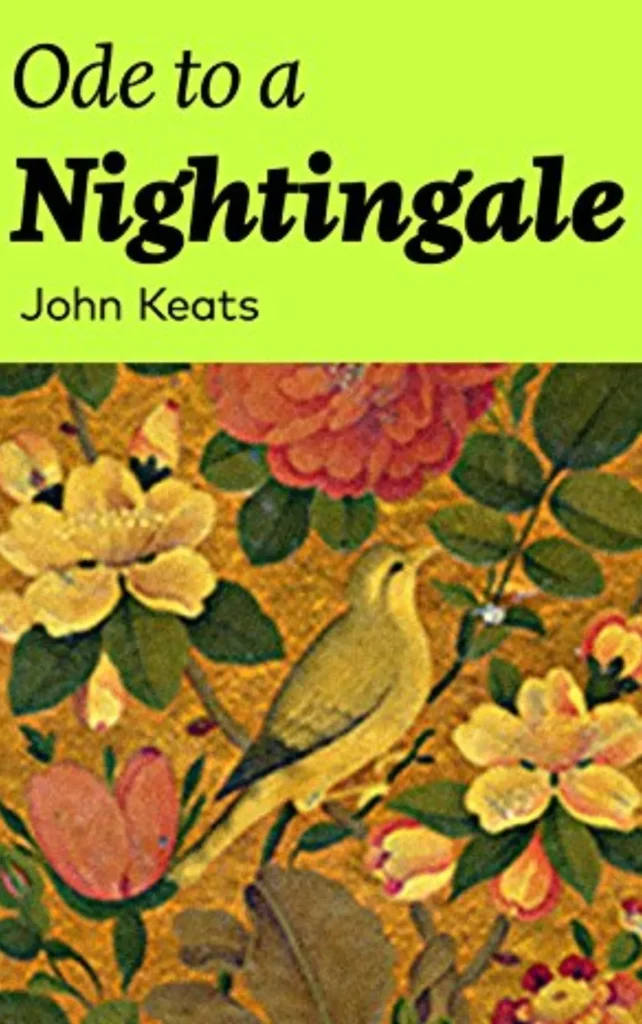


![The Catcher In The Rye Summary, Themes & Characters [by J. D. Salinger] The Catcher In The Rye Summary, Themes & Characters [by J. D. Salinger]](https://atozsummary.com/wp-content/uploads/2023/06/The-Catcher-In-The-Rye-Summary-Themes-Characters-by-J.-D.-Salinger.webp)
